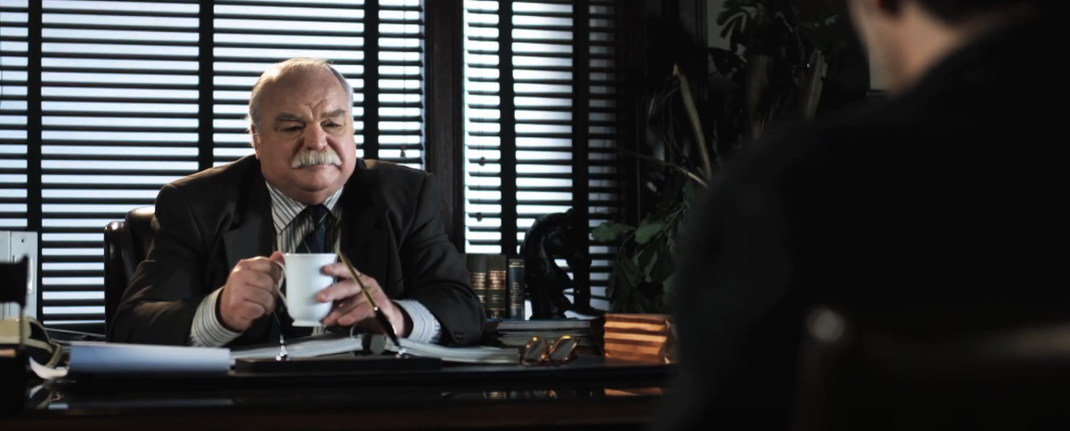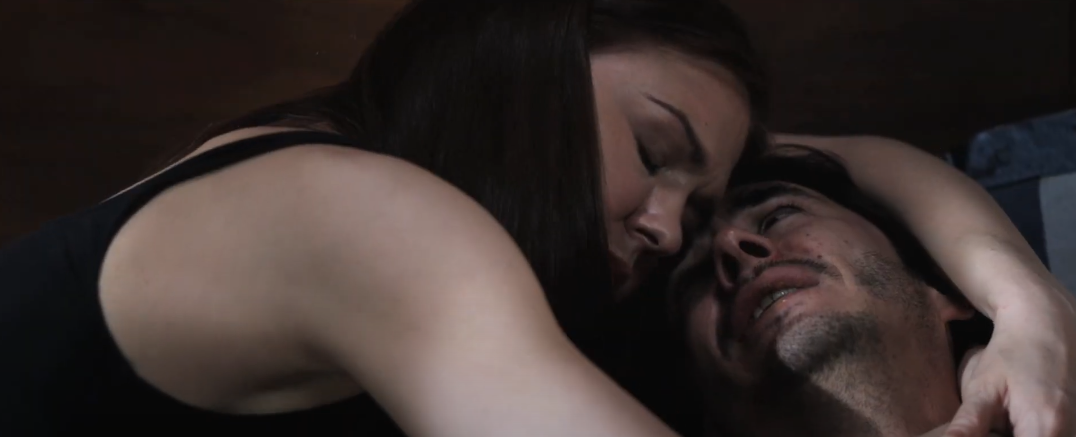From a James Duval perspective, Blue Dream is a triumph. He’s often typecast as either innocent and clueless or comically eccentric, but here he becomes an arrogant, self-centered sex addict, and it’s mesmerizing to watch. His performance captures a slow descent into madness with a rawness and audacity that is unlike anything else in his career. If nothing else, seeing Duval fully inhabit this disturbing, hedonistic persona is worth the price of admission.
Visually and tonally, the film leans into a surrealist, almost Lynchian style. At the outset, there’s a semblance of plot: Duval’s character is a film critic whose life begins to unravel amidst the rise of internet news, drug-fueled hallucinations, and increasingly reckless sexual escapades. But as the story progresses, narrative coherence disintegrates entirely. The last thirty minutes are almost pure chaos—scenes drift into one another with little logic, leaving the viewer to experience the film more as a fever dream than a story.
And here lies the rub: the ambition is evident, but the execution falters. Unlike David Lynch or Nicolas Winding Refn, whose surrealism captivates even when it confounds, director Gregory Hatanaka never quite turns nonsense into art. The film is a series of overlapping, often disconnected clips—some recurring characters are named in captions, some events vaguely relate—but there is no unifying thread strong enough to hold the audience. Attempting to understand plot or character is futile; Blue Dream resists traditional narrative at every turn.
Stylistically, the film is closer in spirit to Stephen Soderbergh’s Schizopolis, an ode to absurdist theater, than to Lynch or Araki. The interpersonal moments, however, are unexpectedly affecting, even amidst the chaos. And the sheer audacity of the film—sex, drugs, and mind-bending hallucinations—is oddly captivating. It’s a film that fails spectacularly, yet fascinates precisely because of that failure.
If you go in expecting a coherent story, you will likely be frustrated. But if you are willing to surrender to the weird, erotic, chaotic world Duval and Hatanaka have created, there is something hypnotic in the madness. Blue Dream is a beautiful disaster: frustrating, incoherent, sometimes offensive, but impossible to ignore.
Verdict: For James Duval fans and lovers of audacious cinematic experiments, it’s worth seeing at least once. For everyone else, prepare to be bewildered—but maybe also strangely captivated.
Jessie Hobson



